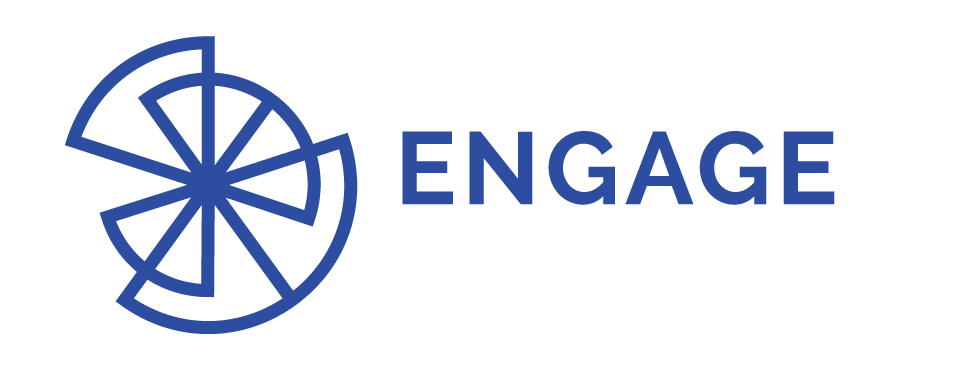Global governance, multilateralism and the rules-based international order are under pressure. The European Union faces an international landscape in flux, dominated by global competition, technological changes, shifting norms and new security threats.
In this fractured environment, debates around qualified majority decision-making in European foreign policy, the “language of power” and joint European defence projects suggest the Union seeks an external action that is both more coherent and more effective. And yet, the EU’s global ambitions are often curtailed by structural weaknesses, legal and institutional limitations and diverging member states’ interests.
At this crucial juncture, where the EU must confront these internal and external challenges, the H2020 Project ENGAGE (Envisioning a New Governance Architecture for a Global Europe) kicks off its research programme by asking the big questions: What major global challenges does the European Union face? Where do European interests lie? Should the EU shape global governance? If so, how can it best overcome internal challenges and tackle global issues?
Join us for the virtual ENGAGE Kick-Off Conference on June 16, from 10:00 a.m. to 4:00 p.m. CEST, featuring Dr. Josep Borrell Fontelles, High Representative of the Union for Foreign Affairs and Security Policy and Vice-President of the European Commission, and Dr. Javier Solana, former High Representative for the Common Foreign and Security Policy, former Secretary General of NATO. In addition to two panel discussions, in which the ENGAGE research team will explore short- and long-term security challenges and discuss how to achieve a truly joint European security and defence, we are delighted to welcome Dr. Rosa Balfour, director of Carnegie Europe, who will give the keynote lecture. Prof. Dr. Angel Saz, director of the Esade Center for Global Economy and Geopolitics, and Prof. Dr. Jan Wouters, director of the Leuven Centre for Global Governance Studies will provide opening remarks.
Programme
ENGAGE Kick-off Conference:
A New Governance Architecture for a Global Europe?
June 16, 2021 | 10:00 a.m. – 3:30 p.m. CEST
10:00—10:30 a.m. Introduction
Led by
Prof. Dr. Angel Saz, director, Center for Global Economy and Geopolitics, Esade
Prof. Dr. Jan Wouters, director, Leuven Centre for Global Governance Studies
10:30—11:00 a.m. Opening Remarks
Led by
Dr. Javier Solana, former High Representative for the Common Foreign and Security Policy, former Secretary General of NATO, chair of ENGAGE’s International Advisory Board
11:00—11:30 a.m. Keynote Lecture on Key Priorities for Europe
Led by
Dr. Rosa Balfour, director, Carnegie Europe
Coffee Break
11:40 a.m.—1:10 p.m. Panel Discussion 1 – The EU’s Key Security Challenges in a Global Context
Over the next few years, the EU will be confronted with increasingly pressing security challenges. This session will assess the readiness of existing global governance security regimes to address these issues and will take stock of the role of the European Union. The discussion will also critically examine concepts like multilateralism and debate the EU’s key interests and capabilities in shaping present and future global governance.
Remarks by
Prof. Dr. Esther Barbé, senior research associate, Institut Barcelona d'Estudis Internacionals
Prof. Dr. Chad Damro, senior lecturer, University of Edinburgh
Prof. Dr. Meltem Müftüler-Baç, dean, Faculty of Arts and Social Sciences, Sabanci University
Prof. Dr. Tobias Schumacher, European Neighbourhood Policy Chair, College of Europe Natolin
Dr. Marcin Zaborowski, policy director, Future of Security Programme, GLOBSEC
Chaired by
Judy Dempsey, Carnegie Europe Foundation, editor in chief of Strategic Europe
Lunch Break
1:30—3:00 p.m. Panel Discussion 2 – Towards a Joint European Security and Defence
To be an impactful global player, the European Union and its Member States must coordinate their efforts in external action, security and defence policies. But how can the EU effectively leverage its current legal basis and financial means while persuasively articulating its existing capabilities and potential opportunities? This discussion will seek to identify what is missing for effective and joint action and provide hands-on analyses of recent security and defence initiatives, such as CARD, PESCO and EDF.
Remarks by
Dr. Bastian Giegerich, director, Defence and Military Analysis, International Institute for Strategic Studies (IISS)
Dr. Jean-Pierre Maulny, deputy director, Institute for International and Strategic Affairs (IRIS)
Dr. Hanna Ojanen, senior research fellow, Tampere University
Prof. Dr. Kolja Raube, senior researcher, Leuven Centre for Global Governance Studies
Prof. Dr. Ramses Wessel, professor, European Law, University of Groningen
Prof. Dr. Monika Sus, professor, Polish Academy of Science & fellow, Hertie School
Chaired by
3:00—3:30 p.m. Keynote Remarks
Led by
Dr. Josep Borrell Fontelles, High Representative for the Union for Foreign Affairs and Security Policy, European Commission


